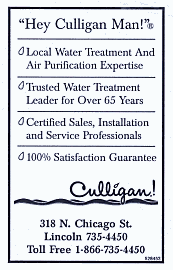|
Finding a qualified tree service is important protection for the
homeowner. Sometimes less-credible tree companies follow storms for
a quick buck and blow out of town as fast as the storm. Knowing how
to hire a reputable arborist can help prevent becoming a victim all
over again.
A professionally trained arborist can determine if a tree can be
saved. Even if the tree must be removed, safety and training are
still needed to prevent additional damage from the removal. Most
chain saw injuries occur during storm cleanup.
In a time of disaster, a fast recovery is desirable, but not
taking the time to hire a reputable tree service may create greater
problems in the future. The worst result of haste may be paying in
advance for tree work that is never completed. The International
Society of Arboriculture offers these tips on hiring an arborist.

How to find a qualified arborist
When searching for a tree care company, there are several things
to look for before making a selection.
-- Ask if the arborists on staff hold an ISA certification. The
International Society of Arboriculture offers a range of
certification credentials, from certified tree worker and
climber specialist to board-certified master arborist. To be
certified, individuals must pass a voluntary comprehensive exam.
Certification must be maintained through continuing education,
which means they should be up-to-date on the latest in
arboricultural technology and knowledgeable about acceptable
practices.
Licensing --
Some states require licensing for tree care companies operating
within that state. Louisiana and Mississippi, two states hit by
hurricanes last year, both require tree companies to be
licensed. Licensing usually requires passing an examination or
earning continuing education credits. Check your state's
requirements, and make sure companies you are considering are in
compliance. In some states, licensing is the only necessary
requirement. Therefore, this could supersede ISA certification
as a requirement to look for; however, if a tree care company
from out of state is offering services, you should look for ISA
credentials.
Professional
affiliation -- Ask about membership in professional
organizations such as the International Society of Arboriculture
or one of its chapters. There are also state arborist
associations, such as the Louisiana Arborist Association and the
Professional Arborist Association of Mississippi. Affiliation
with industry organizations demonstrates a willingness to stay
up-to-date on the latest techniques and information.
Advertisements
-- Check the local yellow pages directory or newspaper for
arborists who list themselves as ISA-certified arborists,
state-licensed or who display the official logos of professional
membership. Also look for logos of business accreditation by
organizations such as The Tree Care Industry Association, which
requires that they have an ISA-certified arborist on staff. Most
reputable tree care professionals do not go door-to-door
soliciting business, so avoid those companies that show up at
your doorstep offering to prune your trees. If a tree care
company from out of state is advertising, it is even more
important to look for these logos of professional
identification.
[to top of second
column] |

-
Insurance --
Ask for proof of insurance and then verify coverage with the
insurance company. A reputable arborist should have insurance to
cover personal and property damage as well as workers'
compensation. If you hire an uninsured tree expert, you can be
held liable for any damages or injuries that occur while they
are on the job. If you hire a company from another state, verify
that their insurance covers them for work done in your state.
-
References --
Ask for references from past customers, and do not hesitate to
check references or visit the locations where the company or
individual has done tree care work.
-
Estimates --
Do not be afraid to ask for an estimate, and it is OK to get
more than one estimate. You should not always select the lowest
bid. When examining the bids, you should look at all
specifications and credentials and the work to be done to
determine which company will provide the best service with the
skill and professionalism needed to protect your investment. And
most importantly, get it in writing. Most reputable arborists
will have the customer sign a contract, so be sure to review it,
and do not be afraid to ask questions.
 It is important to remember that good tree work by qualified
professionals is worth the additional expense; however, poor work,
no matter the price paid, can cost you a great deal in the long run.
Professional prices should include liability and workers'
compensation insurance and may also include the use of bucket trucks
and equipment. There may also be pricing that includes heavier
specialty equipment that may be needed, such as cranes and loaders,
or hardware that may be installed in the tree. If you feel an
estimate is high, do not hesitate to ask what the price includes.
You may realize you are getting much more bang for your buck than
what a less expensive tree service is offering. It is important to remember that good tree work by qualified
professionals is worth the additional expense; however, poor work,
no matter the price paid, can cost you a great deal in the long run.
Professional prices should include liability and workers'
compensation insurance and may also include the use of bucket trucks
and equipment. There may also be pricing that includes heavier
specialty equipment that may be needed, such as cranes and loaders,
or hardware that may be installed in the tree. If you feel an
estimate is high, do not hesitate to ask what the price includes.
You may realize you are getting much more bang for your buck than
what a less expensive tree service is offering.
Take the time to be an informed consumer and prevent yourself
from becoming victimized.
The International Society of Arboriculture, headquartered in
Champaign, is a nonprofit organization supporting tree care research
and education around the world. As part of the society's dedication
to the care and preservation of shade and ornamental trees, it
offers the only internationally recognized certification program in
the industry. For more information and to find a local ISA-certified
arborist, visit
www.treesaregood.com.
[International Society of
Arboriculture news release]
 |